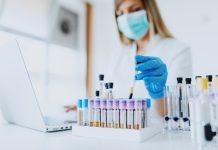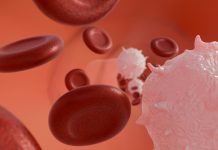Dr Mark Verrill, Consultant Medical Oncologist at the Northern Centre for Cancer Care, discusses the importance of personalised breast cancer treatment
As a consultant medical oncologist specialising in breast cancer treatment, I have witnessed the remarkable evolution of medical approaches over the past decade. The journey has been characterised not by sudden, seismic shifts but by steady, incremental progress.
We have transitioned from broadly applied chemotherapies to highly targeted treatments, which are significantly improving patient outcomes and quality of life. The recent approval of CDK 4/6 inhibitors for early and late-stage breast cancer and the impact of HER2- targeted therapies, such as trastuzumab deruxtecan (T-DXd), are prime examples.
In the challenging realm of triple-negative breast cancer, new treatments, including immune checkpoint inhibitors (ICIs) and antibody-drug conjugates (ADCs), have been approved. ICIs turn the immune system against the cancer, and ADCs specifically target cancer cells, delivering a potent chemotherapy payload to the site of disease.
There has been a parallel evolution in cancer genomics with a range of indications, including identification of cancer-predisposing genes, determination of prognosis, selection of treatment, prediction of treatment toxicity, detection of recurrence and even early detection of cancer. We are entering an era of truly personalised medicine.
Progress in personalisation
Genomic tests can optimise patient care by looking at levels of multiple genes in a tumour. They produce a genomic risk assessment which helps to predict the benefit of chemotherapy for a breast cancer patient. Identifying patients with low recurrence scores, who are unlikely to have a better outcome if they receive chemotherapy, can prevent people from going through this treatment unnecessarily.
Chemotherapy comes with many costs. The University of East Anglia estimated that the overall treatment costs in the UK amount to over £248mn, with key contributors including informal care, time off work and the need to pay for wigs, as well as medication. There are also considerable physical and emotional costs associated with chemotherapy, ranging from loss of hair and sickness to depression.
While chemotherapy is likely to remain an important part of cancer treatment for the foreseeable future, there are an increasing number of trials of chemotherapy de-escalation to minimise the number of people receiving treatment and the intensity of treatment for those who still need it.
Genomic tests can also bring significant cost savings to healthcare systems. In a recent UK trial involving 680 women with hormone-sensitive (HR+) and HER2 negative (HER2-) breast cancer, which spread to between one and three axillary lymph nodes (N1 disease), the use of the Oncotype DX test led to a 51.5% reduction in chemotherapy, producing an estimated saving of £787 per patient. The results clearly demonstrate that not only can this save the health service money, but genomic tests can free up resources across the healthcare system to focus on other patients, leading to a more efficient organisation.
Widening access
Despite these advances, more must be done to ensure broader access to innovative genomic tests and personalised care. It is essential that all patients, regardless of location or socioeconomic status, have access to advanced diagnostic tools.
In certain cases, access to genomic tests and other innovations has not been uniform across the country. For example, up until recently, only around 60% of NHS Trusts were able to offer the Oncotype DX test to ER+, HER2-, and N1 breast cancer patients, meaning that many people in this patient group were going through chemotherapy without any clinical benefit.
In May 2024, this situation changed with a positive NICE recommendation on using the Oncotype DX test to include post-menopausal patients with ER+, HER2-, and N1 breast cancer in England – a decision that is set to benefit more than 3,000 people. However, many patients in Scotland are still not able to access the test.
As we look ahead, a key challenge for all involved in cancer care will be to remove geographic and socioeconomic barriers to accessing vital tools.
The future of breast cancer treatment
The future of breast cancer treatment lies in identifying new targets and refining personalised therapies. Cancer is a genetic disease, and the expansion of genomics is a major area of research interest.
Emerging technologies, such as mRNA vaccines based on individual tumours’ genetic code, hold great promise. Additionally, ongoing research into molecular mechanisms of drug resistance pathways will improve the selection of people for existing treatments.
I am optimistic about these developments, but the journey is a long and winding road. There continue to be challenges around equity of access to key diagnostic tools, and all in the healthcare ecosystem must come together to break down these barriers.
If we do this and continue to develop our understanding of cancer biology, enabling the development of precision-targeted treatments, the future will bring more personalised and effective options for patients.











